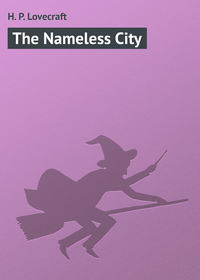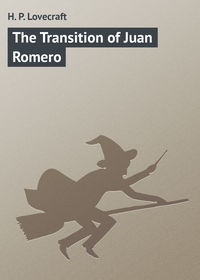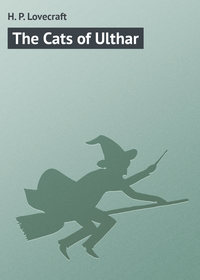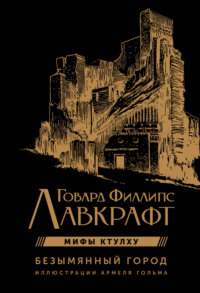
Полная версия
Dagon and Other Macabre Tales
‘On February 22, 1901, a marvelous new star was discovered by Doctor Anderson of Edinburgh, not very far from Algol. No star had been visible at that point before. Within twenty-four hours the stranger had become so bright that it outshone Capella. In a week or two it had visibly faded, and in the course of a few months it was hardly discernible with the naked eye.’
The Doom that came to Sarnath
There is in the land of Mnar a vast still lake that is fed by no stream, and out of which no stream flows. Ten thousand years ago there stood by its shore the mighty city of Sarnath, but Sarnath stands there no more.
It is told that in the immemorial years when the world was young, before ever the men of Sarnath came to the land of Mnar, another city stood beside the lake; the gray stone city of Ib, which was old as the lake itself, and peopled with beings not pleasing to behold. Very odd and ugly were these beings, as indeed are most beings of a world yet inchoate and rudely fashioned. It is written on the brick cylinders of Kadatheron that the beings of Ib were in hue as green as the lake and the mists that rise above it; that they had bulging eyes, pouting, flabby lips, and curious ears, and were without voice. It is also written that they descended one night from the moon in a mist; they and the vast still lake and gray stone city Ib. However this may be, it is certain that they worshipped a sea-green stone idol chiseled in the likeness of Bokrug, the great water-lizard; before which they danced horribly when the moon was gibbous. And it is written in the papyrus of Ilarnek, that they one day discovered fire, and thereafter kindled flames on many ceremonial occasions. But not much is written of these beings, because they lived in very ancient times, and man is young, and knows but little of the very ancient living things.
After many eons men came to the land of Mnar, dark shepherd folk with their fleecy flocks, who built Thraa, Ilarnek, and Kadatheron on the winding river Ai. And certain tribes, more hardy than the rest, pushed on to the border of the lake and built Sarnath at a spot where precious metals were found in the earth.
Not far from the gray city of Ib did the wandering tribes lay the first stones of Sarnath, and at the beings of Ib they marveled greatly. But with their marveling was mixed hate, for they thought it not meet that beings of such aspect should walk about the world of men at dusk. Nor did they like the strange sculptures upon the gray monoliths of Ib, for those sculptures lingered so late in the world, even until the coming men, none can tell; unless it was because the land of Mnar is very still, and remote from most other lands, both of waking and of dream.
As the men of Sarnath beheld more of the beings of Ib their hate grew, and it was not less because they found the beings weak, and soft as jelly to the touch of stones and arrows. So one day the young warriors, the slingers and the spearmen and the bowmen, marched against Ib and slew all the inhabitants thereof, pushing the queer bodies into the lake with long spears, because they did not wish to touch them. And because they did not like the gray sculptured monoliths of Ib they cast these also into the lake; wondering from the greatness of the labor how ever the stones were brought from afar, as they must have been, since there is naught like them in the land of Mnar or in the lands adjacent.
Thus of the very ancient city of Ib was nothing spared, save the sea-green stone idol chiseled in the likeness of Bokrug, the water-lizard. This the young warriors took back with them as a symbol of conquest over the old gods and beings of Ib, and as a sign of leadership in Mnar. But on the night after it was set up in the temple, a terrible thing must have happened, for weird lights were seen over the lake, and in the morning the people found the idol gone and the high-priest Taran-Ish lying dead, as from some fear unspeakable. And before he died, Taran-Ish had scrawled upon the altar of chrysolite with coarse shaky strokes the sign of DOOM.
After Taran-Ish there were many high-priests in Sarnath, but never was the sea-green stone idol found. And many centuries came and went, wherein Sarnath prospered exceedingly, so that only priests and old women remembered what Taran-Ish had scrawled upon the altar of chrysolite. Betwixt Sarnath and the city of Ilarnek arose a caravan route, and the precious metals from the earth were exchanged for other metals and rare cloths and jewels and books and tools for artificers and all things of luxury that are known to the people who dwell along the winding river Ai and beyond. So Sarneth waxed mighty and learned and beautiful, and sent forth conquering armies to subdue the neighboring cities; and in time there sate upon a throne in Sarnath the kings of all the land of Mnar and of many lands adjacent.
The wonder of the world and the pride of all mankind was Sarnath the magnificent. Of polished desert-quarried marble were its walls, in height three hundred cubits and in breadth seventy-five, so that chariots might pass each other as men drove them along the top. For full five hundred stadia did they run, being open only on the side toward the lake where a green stone sea-wall kept back the waves that rose oddly once a year at the festival of the destroying of Ib. In Sarnath were fifty streets from the lake to the gates of the caravans, and fifty more intersecting them. With onyx were they paved, save those whereon the horses and camels and elephants trod, which were paved with granite. And the gates of Sarnath were as many as the landward ends of the streets, each of bronze, and flanked by the figures of lions and elephants carven from some stone no longer known among men. The houses of Sarnath were of glazed brick and chalcedony, each having its walled garden and crystal lakelet. With strange art were they builded, for no other city had houses like them; and travelers from Thraa and Ilarnek and Kadatheron marveled at the shining domes where with they were surmounted.
But more marvelous still were the palaces and the temples and the gardens made by Zokkar the olden king. There were many palaces, the last of which were mightier than any in Thraa or Ilarnek or Kadatheron. So high were they that one within might sometimes fancy himself beneath only the sky; yet when lighted with torches dipt in the oil of Dother their walls showed vast paintings of kings and armies, of a splendor at once inspiring and stupefying to the beholder. Many were the pillars of the palaces, and all of tinted marble, and carven into designs of surpassing beauty. And in most of the palaces the floors were mosaics of beryl and lapis lazuli and sardonyx and carbuncle and other choice materials, so disposed that the beholder might fancy himself walking over beds of the rarest flowers. And there were likewise fountains, which cast scented waters about in pleasing jets arranged with cunning art. Outshining all others was the palace of the kings of Mnar and of the lands adjacent. On a pair of golden crouching lions rested the throne, many steps above the gleaming floor. And it was wrought of one piece of ivory, though no man lives who knows whence so vast a piece could have come. In that palace there were also many galleries, and many amphitheaters where lions and men and elephants battled at the pleasure of the kings. Sometimes the amphitheaters were flooded with water conveyed from the lake in mighty aqueducts, and then were enacted stirring sea-fights, or combats betwixt swimmers and deadly marine things.
Lofty and amazing were the seventeen tower-like temples of Sarnath, fashioned of a bright multi-colored stone not known elsewhere. A full thousand cubits high stood the greatest among them, wherein the high-priests dwelt with a magnificence scarce less than that of the kings. On the ground were halls as vast and splendid as those of the palaces; where gathered throngs in worship of Zo-Kalar and Tamash and Lobon, the chief gods of Sarnath, whose incense-enveloped shrines were as the thrones of monarchs. Not like the cikons of other gods were those of Zo-Kalar and Tamash and Lobon. For so close to life were they that one might swear the graceful bearded gods themselves sate on the ivory thrones. And up unending steps of zircon was the tower-chamber, wherefrom the high-priests looked out over the city and the plains and the lake by day; and at the cryptic moon and significant stars and planets, and their reflections in the lake, at night. Here was done the very secret and ancient rite in detestation of Bokrug, the water-lizard, and here rested the altar of chrysolite which bore the Doom-scrawl of Taran-Ish.
Wonderful likewise were the gardens made by Zokkar the olden king. In the center of Sarnath they lay, covering a great space and encircled by a high wall. And they were surmounted by a mighty dome of glass, through which shone the sun and moon and planets when it was clear, and from which were hung fulgent images of the sun and moon and stars and planets when it was not clear. In summer the gardens were cooled with fresh odorous breezes skilfully wafted by fans, and in winter they were heated with concealed fires, so that in those gardens it was always spring. There ran little streams over bright pebbles, dividing meads of green and gardens of many hues, and spanned by a multitude of bridges. Many were the waterfalls in their courses, and many were the lilied lakelets into which they expanded. Over the streams and lakelets rode white swans, whilst the music of rare birds chimed in with the melody of the waters. In ordered terraces rose the green banks, adorned here and there with bowers of vines and sweet blossoms, and seats and benches of marble and porphyry. And there were many small shrines and temples where one might rest or pray to small gods.
Each year there was celebrated in Sarnath the feast of the destroying of Ib, at which time wine, song, dancing and merriment of every kind abounded. Great honors were then paid to the shades of those who had annihilated the odd ancient beings, and the memory of those beings and of their elder gods was derided by dancers and lutanists crowned with roses from the gardens of Zokkar. And the kings would look out over the lake and curse the bones of the dead that lay beneath it.
At first the high-priests liked not these festivals, for there had descended amongst them queer tales of how the sea-green eikon had vanished, and how Taran-Ish had died from fear and left a warning. And they said that from their high tower they sometimes saw lights beneath the waters of the lake. But as many years passed without calamity even the priests laughed and cursed and joined in the orgies of the feasters. Indeed, had they not themselves, in their high tower, often performed the very ancient and secret rite in detestation of Bokrug, the water-lizard? And a thousand years of riches and delight passed over Sarnath, wonder of the world.
Gorgeous beyond thought was the feast of the thousandth year of the destroying of Ib. For a decade had it been talked of in the land of Mnar, and as it drew nigh there came to Sarnath on horses and camels and elephants men from Thraa, Ilarnek, and Kadatheron, and all the cities of Mnar and the lands beyond. Before the marble walls on the appointed night were pitched the pavilions of princes and the tents of travelers. Within his banquet-hall reclined Nargis-Hei, the king, drunken with ancient wine from the vaults of conquered Pnoth, and surrounded by feasting nobles and hurrying slaves. There were eaten many strange delicacies at that feast; peacocks from the distant hills of Implan, heels of camels from the Bnazic desert, nuts and spices from Sydathrian groves, and pearls from wave-washed Mtal dissolved in the vinegar of Thraa. Of sauces there were an untold number, prepared by the subtlest cooks in all Mnar, and suited to the palate of every feaster. But most prized of all the viands were the great fishes from the lake, each of vast size, and served upon golden platters set with rubies and diamonds.
Whilst the king and his nobles feasted within the palace, and viewed the crowning dish as it awaited them on golden platters, others feasted elsewhere. In the tower of the great temple the priests held revels, and in pavilions without the walls the princes of neighboring lands made merry. And it was the high-priest Gnai-Kah who first saw the shadows that descended from the gibbous moon into the lake, and the damnable green mists that arose from the lake to meet the moon and to shroud in a sinister haze the towers and the domes of fated Sarnath. Thereafter those in the towers and without the walls beheld strange lights on the water, and saw that the gray rock Akurion, which was wont to rear high above it near the shore, was almost submerged. And fear grew vaguely yet swiftly, so that the princes of Ilarnek and of far Rokol took down and folded their tents and pavilions and departed, though they scarce knew the reason for their departing.
Then, close to the hour of midnight, all the bronze gates of Sarnath burst open and emptied forth a frenzied throng that blackened the plain, so that all the visiting princes and travelers fled away in fright. For on the faces of this throng was writ a madness born of horror unendurable, and on their tongues were words so terrible that no hearer paused for proof. Men whose eyes were wild with fear shrieked aloud of the sight within the king’s banquet-hall, where through the windows were seen no longer the forms of Nargis-Hei and his nobles and slaves, but a horde of indescribable green voiceless things with bulging eyes, pouting, flabby lips, and curious ears; things which danced horribly, bearing in their paws golden platters set with rubies and diamonds and containing uncouth flames. And the princes and travelers, as they fled from the doomed city of Sarnath on horses and camels and elephants, looked again upon the mist-begetting lake and saw the gray rock Akurion was quite submerged. Through all the land of Mnar and the land adjacent spread the tales of those who had fled from Sarnath, and caravans sought that accursed city and its precious metals no more. It was long ere any travelers went thither, and even then only the brave and adventurous young men of yellow hair and blue eyes, who are no kin to the men of Mnar. These men indeed went to the lake to view Sarnath; but though they found the vast still lake itself, and the gray rock Akurion which rears high above it near the shore, they beheld not the wonder of the world and pride of all mankind. Where once had risen walls of three hundred cubits and towers yet higher, now stretched only the marshy shore, and where once had dwelt fifty million of men now crawled the detestable water-lizard. Not even the mines of precious metal remained. DOOM had come to Sarnath.
But half buried in the rushes was spied a curious green idol; an exceedingly ancient idol chiseled in the likeness of Bokrug, the great water-lizard. That idol, enshrined in the high temple at Ilarnek, was subsequently worshipped beneath the gibbous moon throughout the land of Mnar.
The White Ship
I am Basil Elton, keeper of the North Point light that my father and grandfather kept before me. Far from the shore stands the gray lighthouse, above sunken slimy rocks that are seen when the tide is low, but unseen when the tide is high. Past that beacon for a century have swept the majestic barques of the seven seas. In the days of my grandfather there were many; in the days of my father not so many; and now there are so few that I sometimes feel strangely alone, as though I were the last man on our planet.
From far shores came those white-sailed argosies of old; from far Eastern shores where warm suns shine and sweet odors linger about strange gardens and gay temples. The old captains of the sea came often to my grandfather and told him of these things which in turn he told to my father, and my father told to me in the long autumn evenings when the wind howled eerily from the East. And I have read more of these things, and of many things besides, in the books men gave me when I was young and filled with wonder.
But more wonderful than the lore of old men and the lore of books is the secret lore of ocean. Blue, green, gray, white or black; smooth, ruffled, or mountainous; that ocean is not silent. All my days have I watched it and listened to it, and I know it well. At first it told to me only the plain little tales of calm beaches and near ports, but with the years it grew more friendly and spoke of other things; of things more strange and more distant in space and in time. Sometimes at twilight the gray vapors of the horizon have parted to grant me glimpses of the ways beyond; and some times at night the deep waters of the sea have grown clear and phosphorescent, to grant me glimpses of the ways beneath. And these glimpses have been as often of the ways that were and the ways that might be, as of the ways that are; for ocean is more ancient than the mountains, and freighted with the memories and the dreams of Time.
Out of the South it was that the White Ship used to come when the moon was full and high in the heavens. Out of the South it would glide very smoothly and silently over the sea. And whether the sea was rough or calm, and whether the wind was friendly or adverse, it would always glide smoothly and silently, its sails distant and its long strange tiers of oars moving rhythmically. One night I espied upon the deck a man, bearded and robed, and he seemed to beckon me to embark for far unknown shores. Many times afterward I saw him under the full moon, and ever did he beckon me.
Very brightly did the moon shine on the night I answered the call, and I walked out over the waters to the White Ship on a bridge of moonbeams. The man who had beckoned now spoke a welcome to me in a soft language I seemed to know well, and the hours were filled with soft songs of the oarsmen as we glided away into a mysterious South, golden with the glow of that full, mellow moon.
And when the day dawned, rosy and effulgent, I beheld the green shore of far lands, bright and beautiful, and to me unknown. Up from the sea rose lordly terraces of vendure, tree-studded, and shewing here and there the gleaming white roofs and colonnades of strange temples. As we drew nearer the green shore the bearded man told me of that land, the land of Zar, where dwell all the dreams and thoughts of beauty that come to men once and then are forgotten. And when I looked upon the terraces again I saw that what he said was true, for among the sights before me were many things I had once seen through the mists beyond the horizon and in the phosphorescent depths of ocean. There too were forms and fantasies more splendid than any I had ever known; the visions of young poets who died in want before the world could learn of what they had seen and dreamed. But we did not set foot upon the sloping meadows of Zar, for it is told that he who treads them may nevermore return to his native shore.
As the White Ship sailed silently away from the templed terraces of Zar, we beheld on the distant horizon ahead the spires of a mighty city; and the bearded man said to me, ‘This is Thalarion, the City of a Thousand Wonders, wherein reside all those mysteries that man has striven in vain to fathom.’ And I looked again, at closer range, and saw that the city was greater than any city I had known or dreamed of before. Into the sky the spires of its temples reached, so that no man might behold their peaks; and far back beyond the horizon stretched the grim, gray walls, over which one might spy only a few roofs, weird and ominous, yet adorned with rich friezes and alluring sculptures. I yearned mightily to enter this fascinating yet repellent city, and besought the bearded man to land me at the shone pier by the huge carven gate Akariel; but he gently denied my wish, saying, ‘Into Thalarion, the City of a Thousand Wonders, many have passed but none returned. Therein walk only daemons and mad things that are no longer men, and the streets are white with the unburied bones of those who have looked upon the eidolon Lathi, that reigns over the city.’ So the White Ship sailed on past the wails of Thalarion, and followed for many days a southward-flying bird, whose glossy plumage matched the sky out of which it had appeared.
Then came we to a pleasant coast gay with blossoms of every hue, where as far inland as we could see basked lovely groves and radiant arbors beneath a meridian sun. From bowers beyond our view came bursts of song and snatches of lyric harmony, interspersed with faint laughter so delicious that I urged the rowers onward in my eagerness to reach the scene. And the bearded man spoke no word, but watched me as we approached the lily-lined shore. Suddenly a wind blowing from over the flowery meadows and leafy woods brought a scent at which I trembled. The wind grew stronger, and the air was filled with the lethal, charnel odor of plague-stricken towns and uncovered cemeteries. And as we sailed madly away from that damnable coast the bearded man spoke at last saying, ‘This is Xura, the Land of Pleasures Unattained.’
So once more the White Ship followed the bird of heaven, over warm blessed seas fanned by caressing, aromatic breezes. Day after day and night after night did we sail, and when the moon was full we would listen to soft songs of the oarsmen, sweet as on that distant night when we sailed away from my far native land. And it was by moonlight that we anchored at last in the harbor of Sona-Nyl, which is guarded by twin headlands of crystal that rise from the sea and meet in a resplendent arch. This is the Land of Fancy, and we walked to the verdant shore upon a golden bridge of moonbeams.
In the Land of Sona-Nyl there is neither time nor space, neither suffering nor death; and there I dwelt for many aeons. Green are the groves and pastures, bright and fragrant the flowers, blue and musical the streams, clear and cool the fountains, and stately and gorgeous the temples, castles, and cities of Sona-Nyl. Of that land there is no bound, for beyond each vista of beauty rises another more beautiful. Over the countryside and amidst the splendor of cities can move at will the happy folk, of whom all are gifted with unmarred grace and unalloyed happiness. For the aeons that I dwelt there I wandered blissfully through gardens where quaint pagodas peep from pleasing clumps of bushes, and where the white walks are bordered with delicate blossoms. I climbed gentle hills from whose summits I could see entrancing panoramas of loveliness, with steepled towns nestling in verdant valleys, and with the golden domes of gigantic cities glittering on the infinitely distant horizon. And I viewed by moonlight the sparkling sea, the crystal headlands, and the placid harbor wherein lay anchored the White Ship.
It was against the full moon one night in the immemorial year of Tharp that I saw outlined the beckoning form of the celestial bird and felt the first stirrings of unrest. Then I spoke with the bearded man, and told him of my new yearnings to depart for remote Cathuria, which no man hath seen, but which all believe to lie beyond the basalt pillars of the West. It is the Land of Hope, and in it shine the perfect ideals of all that we know elsewhere; or at least so men relate. But the bearded man said to me, ‘Beware of those perilous seas wherein men say Cathuria lies. In Sona-Nyl there is no pain or death, but who can tell what lies beyond the basalt pillars of the West?’ Natheless at the next full moon I boarded the White Ship, and with the reluctant bearded man left the happy harbor for untraveled seas.
And the bird of heaven flew before, and led us toward the basalt pillars of the West, but this time the oarsmen sang no soft songs under the full moon. In my mind I would often picture the unknown Land of Cathuria with its splendid groves and palaces, and would wonder what new delights there awaited me. ‘Cathuria,’ I would say to myself, ‘is the abode of gods and the land of unnumbered cities of gold. Its forests are of aloe and sandalwood, even as the fragrant groves of Camorin, and among the trees flutter gay birds sweet with song. On the green and flowery mountains of Cathuria stand temples of pink marble, rich with carven and painted glories, and having in their courtyards cool fountains of silver, where purr with ravishing music the scented waters that come from the grotto-born river Narg. And the cities of Cathuria are cinctured with golden walls, and their pavements also are of gold. In the gardens of these cities are strange orchids, and perfumed lakes whose beds are of coral and amber. At night the streets and the gardens are lit with gay lanthorns fashioned from the three-colored shell of the tortoise, and here resound the soft notes of the singer and the lutanist. And the houses of the cities of Cathuria are all palaces, each built over a fragrant canal bearing the waters of the sacred Narg. Of marble and porphyry are the houses, and roofed with glittering gold that reflects the rays of the sun and enhances the splendor of the cities as blissful gods view them from the distant peaks. Fairest of all is the palace of the great monarch Dorieb, whom some say to be a demi-god and others a god. High is the palace of Dorieb, and many are the turrets of marble upon its walls. In its wide halls many multitudes assemble, and here hang the trophies of the ages. And the roof is of pure gold, set upon tall pillars of ruby and azure, and having such carven figures of gods and heroes that he who looks up to those heights seems to gaze upon the living Olympus. And the floor of the palace is of glass, under which flow the cunningly lighted waters of the Narg, gay with gaudy fish not known beyond the bounds of lovely Cathuria.’









